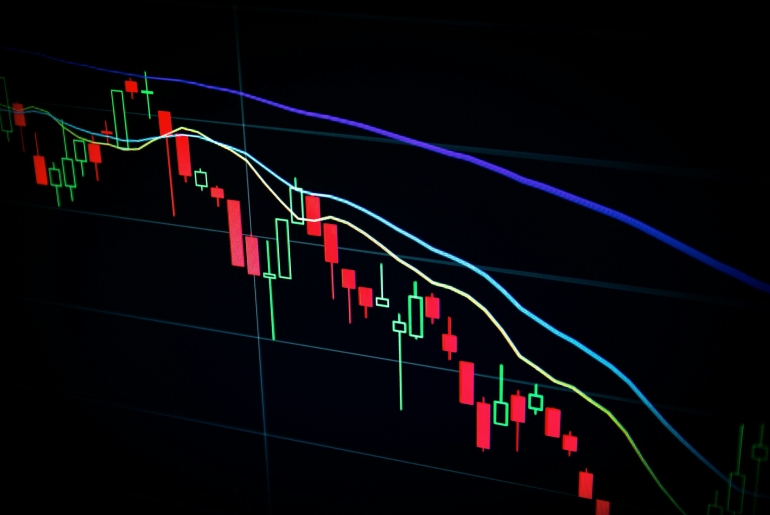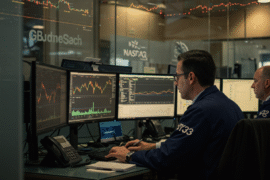This article may contain references to products or services from one or more of our advertisers or partners. We may receive compensation when you click on links to those products or services. Nonetheless, our opinions are our own.
The information presented in this article is accurate to the best of our knowledge at the time of publication. However, information is subject to change, and no guarantees are made about the continued accuracy or completeness of this content after its publication date.
Diving into the intriguing world of trading, we encounter a multitude of strategies, terminologies, and technologies essential for modern broking. One such technology is the ‘matching engine.’
Promising to revolutionize financial exchanges through advanced automation, this digital tool has piqued the curiosity of many. But what exactly is a matching engine, and how does it streamline operations for brokers across the board? In this guide, we’ll deconstruct these concepts and explore the role of matching engines in today’s fast-paced trading environment.
What is a Matching Engine?
In the world of trading, a matching engine plays an integral role in arranging transactions. Without a matching engine, it would be difficult for electronic exchanges to be efficient.
Simply put, a matching engine is a digital system that pairs buy and sell orders for assets, such as stocks or cryptocurrency. This emergent technology has quickly become foundational for modern financial exchanges by automating tasks that traders used to have to handle manually.
How do Matching Engines Work?
A matching engine operates based on predefined rules and algorithms that serve to pair buy and sell orders as they come into an exchange. Orders are usually matched according to price and time. It primarily pairs the highest bidding buy order with the lowest asking sell order. And if two orders share the same price, then the one that came in first takes precedence.
Taking this into account, you’ll get more out of this technology if you use a matching engine software like DXmatch. A flexible matching engine will be able to integrate with other products and technology that suit your requirements or the trading market as a whole.
However, there’s a lot that goes into picking the best matching engine. You’ll have to make sure it has the right features (real-time data, algorithms, etc.), benefits (low latency, scalability, etc.), and matching models (FIFO, pure pro-rata, etc.) for your needs, or you’ll come up short.
Voted "Best Overall Budgeting App" by Forbes and WSJ
Monarch Money helps you budget, track spending, set goals, and plan your financial future—all in one app.
Get 50% OFF your first year with code MONARCHVIP
How and Why do Brokers use Matching Engines?
In the dynamic landscape of trading, ensuring efficient and accurate operations is key. Let’s dive into how brokers utilize matching engines and why they’ve become integral to modern trading.
To Improve Efficiency
Matching engines allow for an automation revolution by taking on the bulky task of pairing buy and sell orders. The immense precision inherent in these systems vastly outperforms any manual efforts. This subsequently relieves brokers from focusing on routine tasks.
This frees up time for more strategic measures, such as improving customer relationships or exploring profitable trade opportunities. Using a matching engine is not only a step toward modernization but also a means to boost functionality and performance among brokerages.
For Faster Execution
In the high-speed world of trading, how quickly you execute transactions is important to your success. This is where matching engines take center stage. They allow brokers to expedite trade executions by instantly pairing buy and sell orders based on predefined parameters.
In a constantly shifting market where fractions of seconds can make a noticeable difference in outcomes, the unparalleled speed offered by a matching engine makes it an invaluable tool for brokers keen on achieving near-instant executions and offering clients seamless experiences.
To Reduce Human Error
In the realm of trading, even a small mistake can lead to massive financial losses. This is why reducing human error is paramount. By automatically connecting buyers and sellers based on meticulously defined rules and parameters, they bypass the potential for manual mistakes.
Not only does this lead to more accurate transactions, but it also greatly diminishes the risk factor involved in executing trades for individuals and clients. Consequently, brokers using matching engines reduce their liability while bolstering overall reliability in service delivery.
For Fair Trading
Advocating for fair trading practices is a cornerstone of any broker’s mission. Establishing this fairness becomes simple with the use of matching engines. These digital systems execute trades based on predetermined rules, eliminating any chance for bias or preferential treatment.
The impartial nature of these engines ensures that all orders are treated equally and the best possible matches are made objectively. By employing matching engines, brokers inherently promote transparency and equity within their operations, fostering a trusting environment.
To Optimize Profit Opportunities
In a constantly shifting market landscape, dynamic and opportunistic trading can be the difference between profit and loss. With their real-time data analysis, matching engines offer brokers an enhanced means to identify potential trade opportunities and capitalize on them.
This system’s ability to promptly pair diverse buy and sell orders allows clients to maximize their profits from every given market situation. Therefore, by integrating matching engines into their operations, brokers can seize profit opportunities that might have otherwise been missed.
In Conclusion…
We hope this guide helped you understand the essential role of matching engines in modern trading operations. As technology keeps advancing, brokers are increasing their reliance on automation tools like these to optimize their services. Whether you’re a seasoned trader or just starting out in the market, understanding the efficacy of a matching engine is worthwhile.

Reviewed and edited by Albert Fang.
See a typo or want to suggest an edit/revision to the content? Use the contact us form to provide feedback.
At FangWallet, we value editorial integrity and open collaboration in curating quality content for readers to enjoy. Much appreciated for the assist.
Did you like our article and find it insightful? We encourage sharing the article link with family and friends to benefit as well - better yet, sharing on social media. Thank you for the support! 🍉
Article Title: What is a Matching Engine and How is it Used by Brokers?
https://fangwallet.com/2024/02/05/what-is-a-matching-engine-and-how-is-it-used-by-brokers/The FangWallet Promise
FangWallet is an editorially independent resource - founded on breaking down challenging financial concepts for anyone to understand since 2014. While we adhere to editorial integrity, note that this post may contain references to products from our partners.
The FangWallet promise is always to have your best interest in mind and be transparent and honest about the financial picture.
Become an Insider

Subscribe to get a free daily budget planner printable to help get your money on track!
Make passive money the right way. No spam.
Editorial Disclaimer: The editorial content on this page is not provided by any of the companies mentioned. The opinions expressed here are the author's alone.
The content of this website is for informational purposes only and does not represent investment advice, or an offer or solicitation to buy or sell any security, investment, or product. Investors are encouraged to do their own due diligence, and, if necessary, consult professional advising before making any investment decisions. Investing involves a high degree of risk, and financial losses may occur including the potential loss of principal.
Source Citation References:
+ Inspo












































